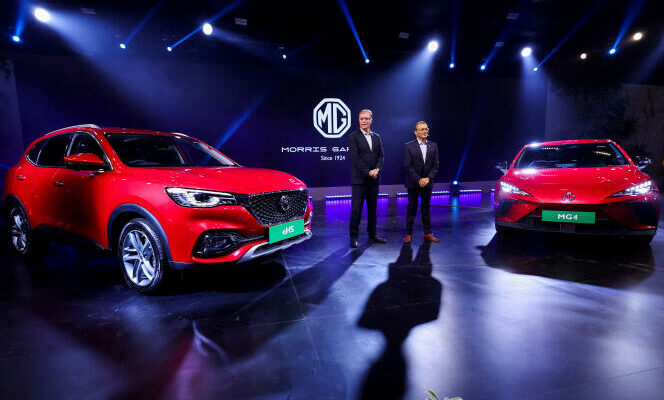This post is taken from the newsletter ” Human warmth “, sent every Tuesday at 12 p.m. Every week, journalist Nabil Wakim, who hosts the Chaleur Humaine podcast, answers questions from Internet users on the climate challenge. You can register for free here:
The question of the week
“After reading the edition of the newsletter (sorry the newsletter) “Human warmth on SUVs”, I asked myself: “Why don’t we encourage the purchase of plug-in hybrid cars, which are a good compromise between ‘electric and thermal?’ » Question asked by Michel at chaud [email protected]
My answer : I too thought for a while that it was a practical option, since plug-in hybrid cars allow you to make short trips with electric power and long trips with gasoline. But all the studies on the subject show the opposite: these are cars that consume a lot, and which even have a negative climate impact. Moreover, they will be banned for sale from 2035 in the European Union.
1) What are we talking about?
When we talk about hybrid vehicles, we are actually talking about two types of cars. Those which are, like the Toyota Prius, gasoline cars which have a small engine, which is practical in town to save a little fuel, but it is not decisive.
Plug-in hybrid cars, also called VHR, combine a classic thermal engine and a battery which provides around 50 kilometers of autonomy. In France, the best-selling models are versions of the Peugeot 3008 or the Citroën C5. The idea is quite attractive: we use the electric motor most of the time, and the combustion engine when we have to make long journeys. A little more than 120,000 plug-in hybrids will come to France in 2022 (out of a total of around 350,000 electric vehicle sales that year)
2) Why it’s not such a good idea after all
In reality, plug-in hybrids have several problems: most models are SUVs, among the heaviest on the market. Obviously: you have to put two motor systems. Which means that their manufacturing emits more greenhouse gases than a conventional thermal or electric vehicle.
But the use is not great either: all the studies on the subject (for example the work provided by Transport & Environment) converge on the fact that electric mode is used very little. For individuals, we are around 50% of the kilometers traveled, and for company cars, rather around 15% with electric. Result: users of these vehicles drive with gasoline for most of their journeys, with a vehicle that consumes much, much more: between three and five times more than predicted by compliance tests. And therefore greenhouse gas emissions which are very significant.
You have 40% of this article left to read. The rest is reserved for subscribers.
